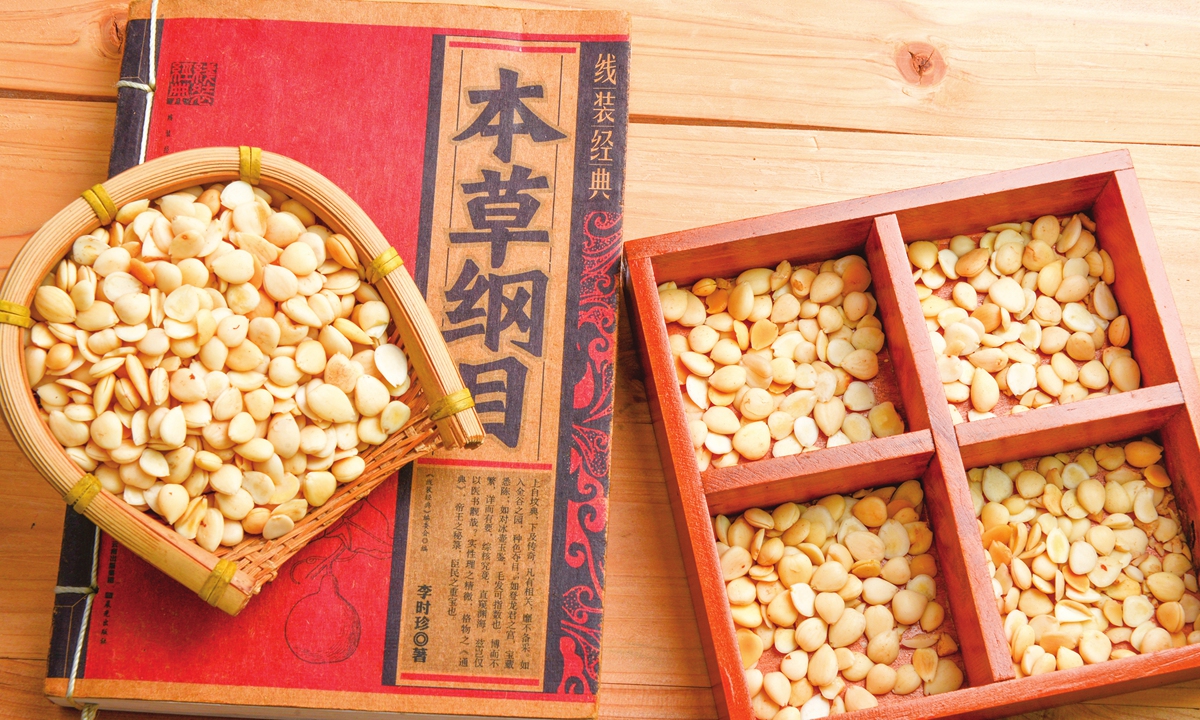
A contemporary copy of the Compendium of Materia Medica Photo: IC
'Compendium of Materia Medica'(I): A cataloged book on Chinese herbalism Compendium of Materia Medica is the first book in Chinese history compiled from indexes of different herbal medicines. It was written in 1578 by Li Shizhen, a famous herbalist in the Ming Dynasty (1368-1644). After several revisions, the book was published in 1593.
The book is composed of 52 volumes divided into 16 sections such as stones, grass, grain, clothing, daily utensils, birds, beasts and humans. Each section consists of 60 categories that include various kinds of grasses and weeds. The book records 1,892 varieties of medicinal plants, including 1,094 kinds of plants, 443 kinds of animals, 161 kinds of minerals, and 194 kinds derived from other sources. The book not only confirmed the 1,528 kinds of medicines that had been used by Li Shizhen's predecessors, of which 374 kinds were new additions accumulated from his own practice, field studies and testing. It was an enormous figure for one scholar.
Each medicine is given a standard name called gang attached with an interpretative name called mu. A detailed description of its name, place of origin, procession methods, scent, efficacy, major functions, folk prescriptions and corrections to previous misunderstandings are provided. The book has a collection of 11,096 prescriptions and has 1,109 pictures of the plants, of which more than 8,000 came from the summary of Li's clinical experience and years of collecting herbs.
Testing methods include means such as distillation, evaporation, sediment sampling, desiccation and burning.
Aside from traditional medicines, the book also includes other fields of knowledge such as botany, zoology, mineralogy, physics, chemistry and agronomy. It preserved a great deal of scientific works, some of which had been lost to time. Fortunately, some of their knowledge can be gleamed from this work.
The book pioneers a method of medical classification based on natural characteristics rather than utility characteristics, which had a significant influence on modern medicine. British biologist Charles Darwin made several quotations from it in his own book, and acclaimed it as "an ancient Chinese encyclopedia."
The book has been translated into many foreign languages, including Japanese, English and Russian.
In 2022, the Compendium of Materia Medica became the first work to enter the IP digital collection of ancient traditional Chinese medicine books in China.




